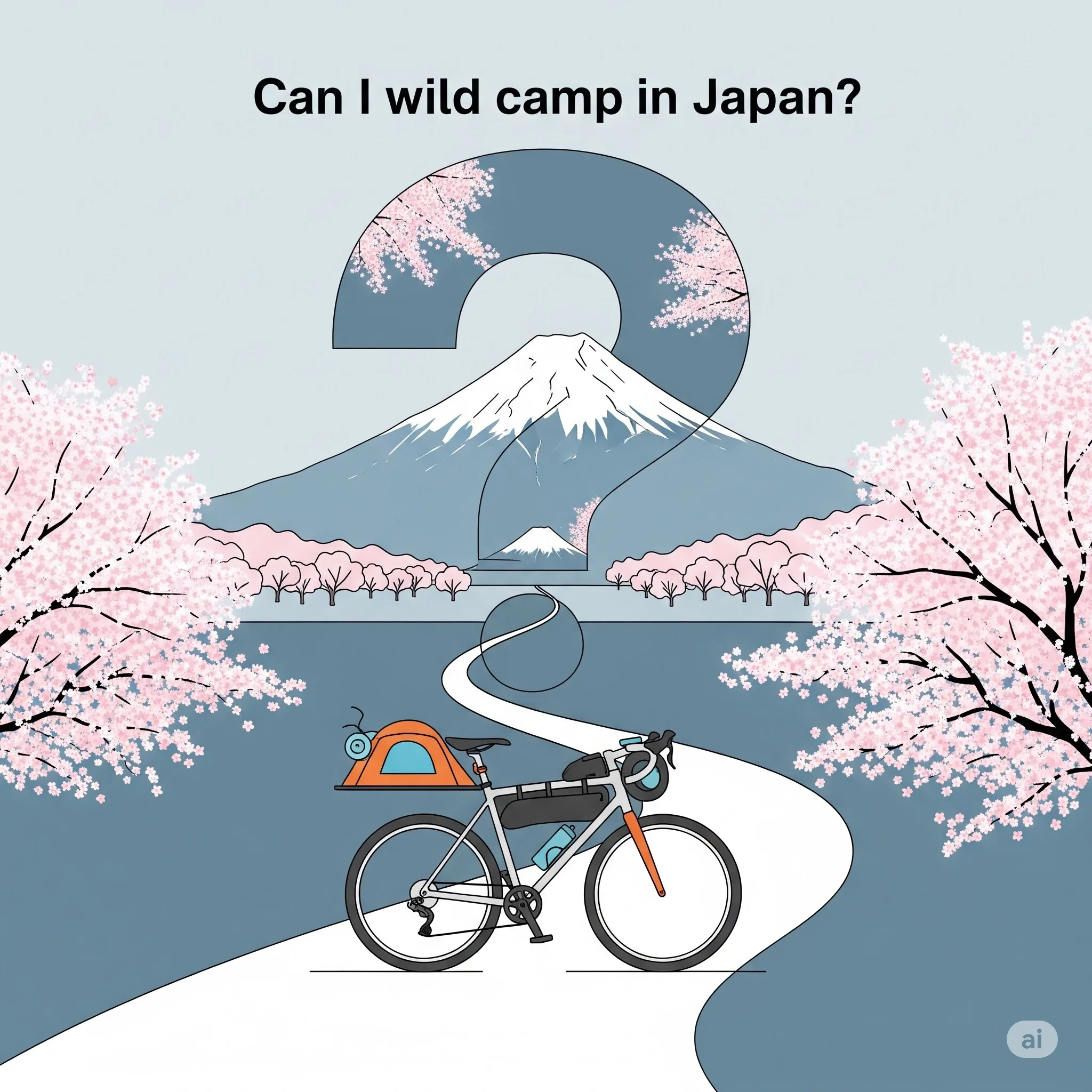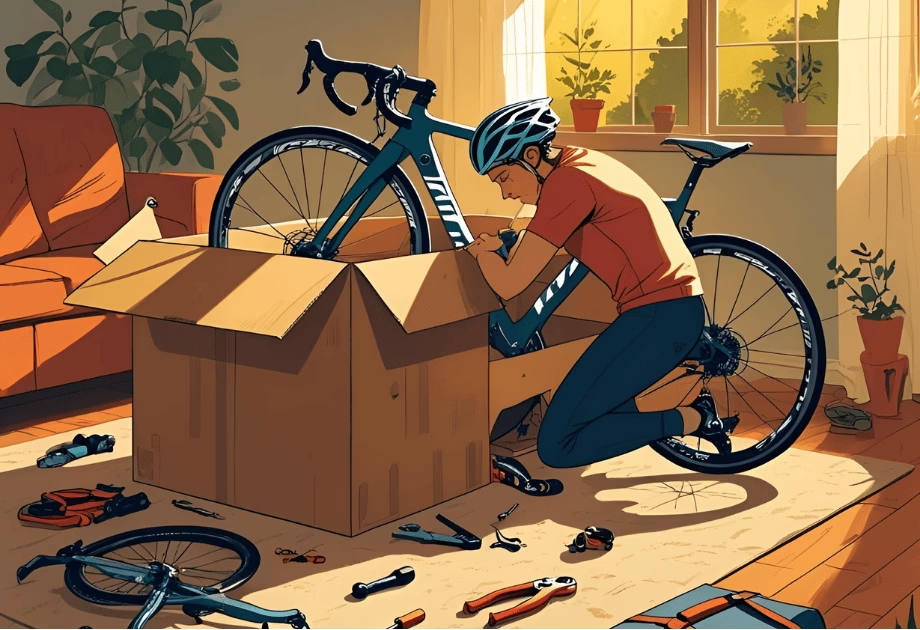You’ve got your bike loaded with gear, a map of Japan’s incredible backroads, and a plan to ride as far as your legs will take you. The freedom of bikepacking is all about flexibility—the ability to stop when you’re tired, climb that extra hill, and find a place to rest your head at the end of the day. For many cycle tourists, the idea of wild camping seems like the perfect solution to this freedom.
But before you start a multi-day journey with no campsites pre-booked, let’s talk about the reality of bikepacking and camping in Japan. While the dream is to roll up and pitch your tent anywhere, this guide will show you why that’s often difficult and how you can still have an unforgettable adventure on your own terms.
Table of contents
The Reality: Why Wild Camping is Very Difficult in Japan
When you’re a cycle tourist, every bit of uncertainty can be a challenge. Here are the main reasons why finding an impromptu wild camping spot after a long day in the saddle is extremely difficult and often illegal.
Legal Reasons
Land Ownership: Almost all land in Japan is privately owned or managed by local governments. Pulling off the road and setting up a tent is considered trespassing, which is against the law.
Nature Preservation: Japan has many national parks and protected areas with strict rules to preserve their fragile ecosystems. Camping is only permitted in designated, official campsites within these areas.
Practical Problems
Even if you find a spot that seems free, you’ll run into some serious practical challenges that a cycle tourist must consider.
No Campfires: Most of Japan has a serious risk of forest fires, especially in the mountainous regions. Therefore, using open flames—like campfires or cooking stoves—is strictly forbidden outside of designated areas. Wild camping means you likely won’t be able to cook a hot meal after a long day of riding.
No Toilets or Waste Management: Many rural areas lack public restrooms or garbage disposal sites. Leaving human waste or trash behind pollutes the environment and shows disrespect for the land and local communities. For a bikepacker, carrying waste until you find a disposal point is a major hassle.
Wildlife: While you might not see them often, wild animals like bears, wild boars, and monkeys live in the Japanese countryside. Camping in undesignated areas can put you and the animals at risk.
A Smart Solution: How to Enjoy Bikepacking with Freedom
Just because true wild camping is difficult doesn’t mean you have to sacrifice flexibility on your bikepacking trip. The best way to experience Japan’s beautiful nature is to use its well-maintained, official campsites.
The vast majority of campsites in Japan are clean, safe, and often incredibly cheap—or even free!
The Benefits for a Bikepacker
You Can Have a Fire: Most official campsites have designated fire pits or grilling areas, so you can safely enjoy a campfire or cook a proper meal to refuel after a long day of riding.
Basic Facilities: You’ll have access to basic but essential facilities like toilets and running water, which makes your trip much more comfortable and hygienic.
Safety and Security: Campsites are managed, so there’s a level of security. In case of an emergency, help is nearby—a major relief when you’re far from home.
Solving the Shower and Hygiene Problem
Staying clean can be a major concern on a multi-day bikepacking trip. Luckily, Japan has some unique and convenient solutions.
Onsen & Sentō: Japan is famous for its hot springs (Onsen) and public bathhouses (Sentō). You can find them almost everywhere, even in small towns. They offer an affordable and relaxing way to wash up after a long day in the saddle, and a hot soak is a great way to soothe tired muscles.
Manga Cafes: This might sound strange, but many Japanese comic cafes (Manga Kissa) offer private rooms with showers for a small fee. This is a great, low-cost option if you need a quick shower and a place to rest.
Useful Resources
To find safe and legal campsites, do your research beforehand. A few reliable websites can help you:
Japan National Tourism Organization (JNTO): The official tourism site has a dedicated page with information on camping throughout the country.
Nap-camp: This is one of the most popular Japanese campsite booking websites. While the main site is in Japanese, it’s an incredibly comprehensive resource that can be navigated with the help of a browser’s translation feature.
Conclusion
The true magic of bikepacking in Japan is found in respecting its rules and its people. By planning your trip and using official campsites, you can have a deeper, more comfortable, and truly unforgettable experience in the heart of Japan’s stunning wilderness. You’ll be free from worrying about where to sleep and can focus on what you came for: the ride.
Ready to start planning your next two-wheeled adventure? Check out our other articles for more tips on cycling in Nagano and beyond!


